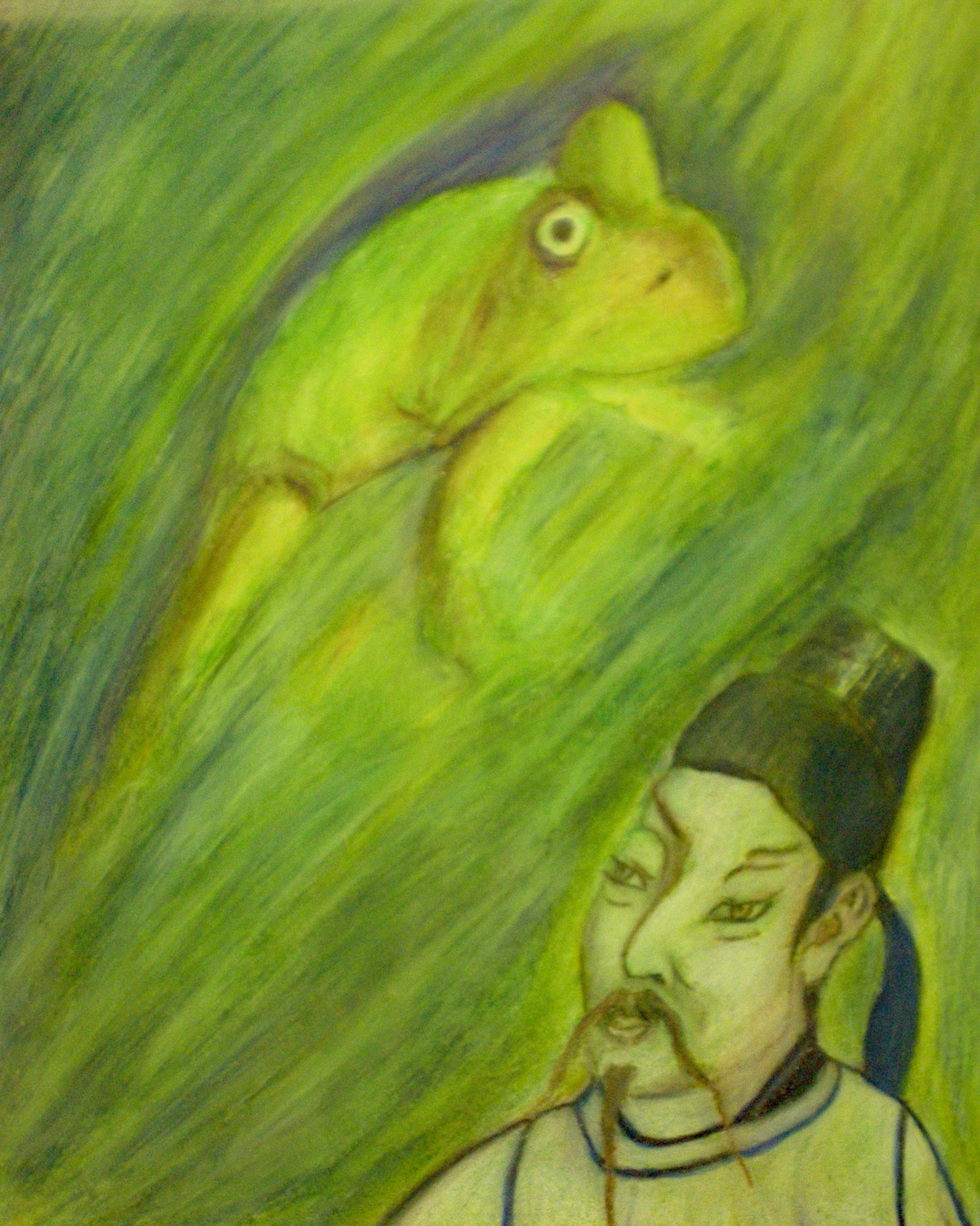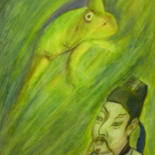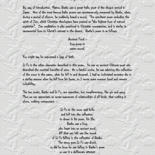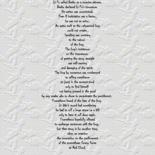Charles Riley Art
Crime Against Nature (2013)
39x15 in ~ Painting, Pencil
Contact
This is an artwork that combines timelessness of myth, poetry, history, and culture. With my artwork I always work to resurrect the mystery and wonder often missing from our lives.
Crime Against Nature
By way of introduction, Matsuo Basho was a great haiku poet of the shogun period in Japan. One of the most famous haiku poems was spontaneously composed by Basho, when, during a period of silence, he suddenly heard a sound. The resultant poem embodies the spirit of Zen, which Christian theologians have praised as "the highest form of natural mysticism". Zen meditation is also practiced in Christian monasteries, and is similar in sacramental form to Christ's retreat in the desert. Basho's poem is as follows:
Ancient Pond -
frog-jump-in
water-sound.
You might say he expressed a leap of faith.
Li Po is the other character described in this poem. He was an ancient Chinese poet who described the convivial benefits of wine. On a fateful cruise, he was admiring the reflection of the moon in the water, when he fell in and drowned. I had an inebriated ancestor die in a similar manner when he fell from his horse, so I sense some common bond and remote culpability.
The two poets, Basho and Li Po, are opposites, but complimentary, like yin and yang. Thus we can appreciate an acute awareness of relationships of all kinds, that nothing is alone, nothing unimportant –
Li Po to the moon said hello
and fell into the reflection
to drown in his poem, his life.
Basho was a frog,
who leapt into an ancient pond.
All that was left was the sound
of Li Po falling in the reflection of Basho.
The story goes Li Po was drunk,
so did he know he was falling in Basho's poem
or was it a deliberate attempt
to upstage the frog, who was left behind all wet?
At the trial,
Li Po called Basho as a surprise witness.
Basho declared Li Po's innocence.
His action was uncontrived.
Even if inebriation was a factor,
he was not an actor.
An actor such as the referenced frog
could not create.
Speaking was contrary
to the nature
of the frog.
The frog's insistence
on the importance
of getting the story straight
was self-serving
and damaging of the spirit.
The frog by consensus was condemned
to willing compliance
to jump in the ancient pond
only to find himself
not having jumped in the pond
by any reader who so chose to perpetuate the punishment.
Prometheus heard of the fate of the frog.
It didn't sound bad considering
he had to roll a huge stone up a hill
only to have it roll down again.
Prometheus hopefully offered
to exchange sentences with the frog,
but that story is for another time,
when we examine
the connection to the confinement
of the promethean Crazy Horse
at Red Cloud.
Added
Available as prints from $36.58
Reproductions, Canvas prints, Metal Print
Available as digital files from $32



